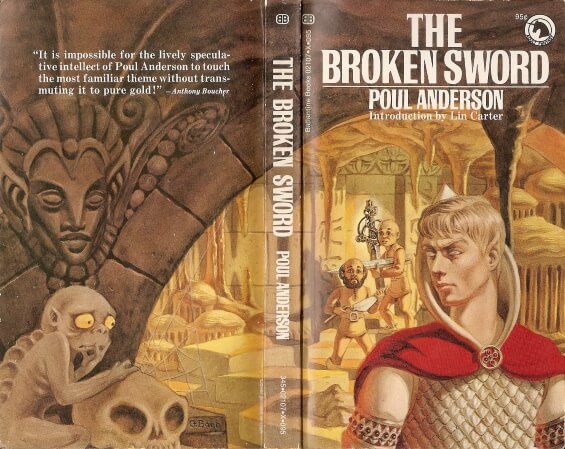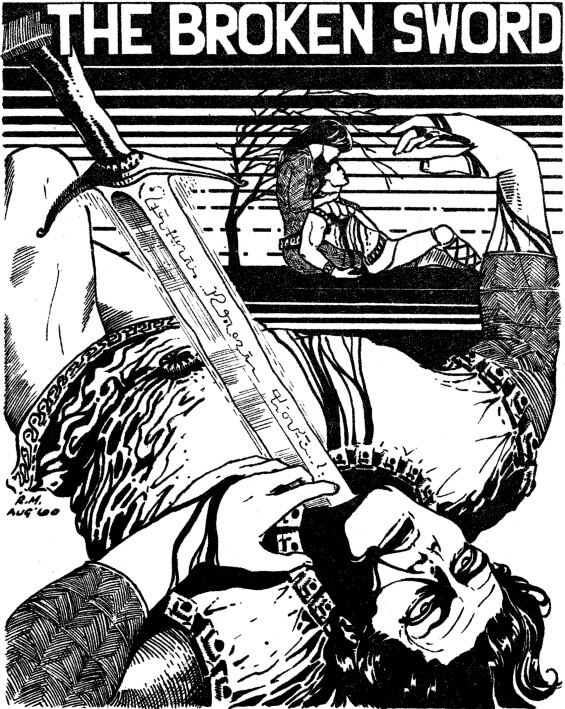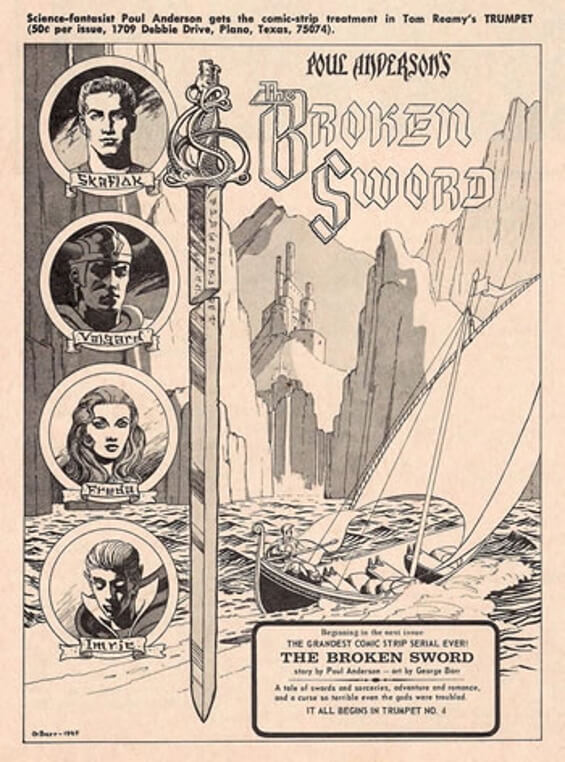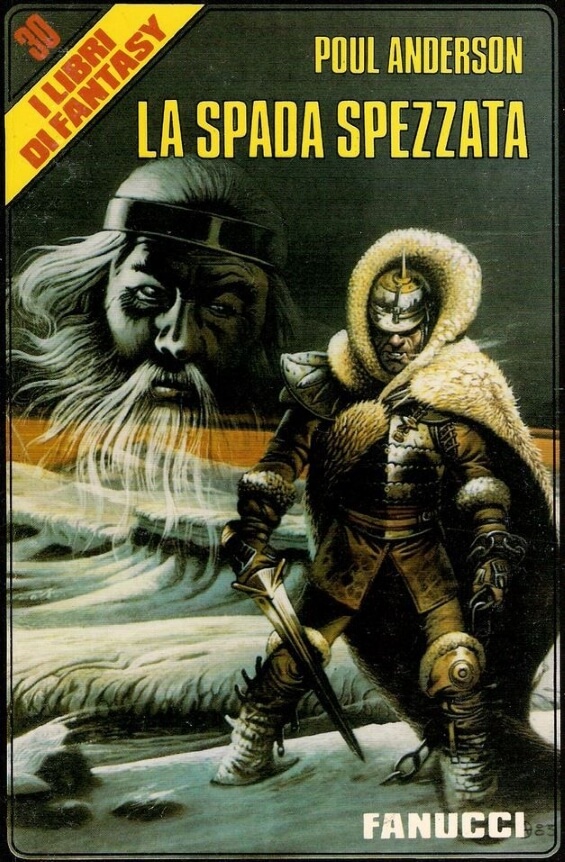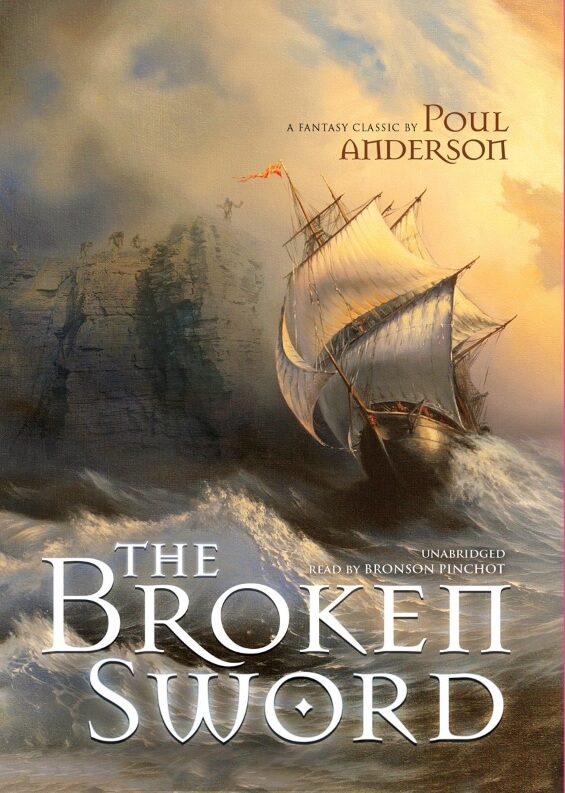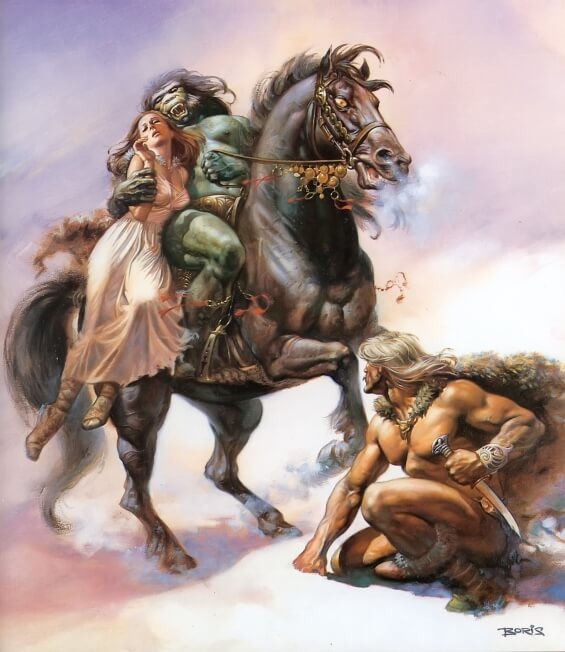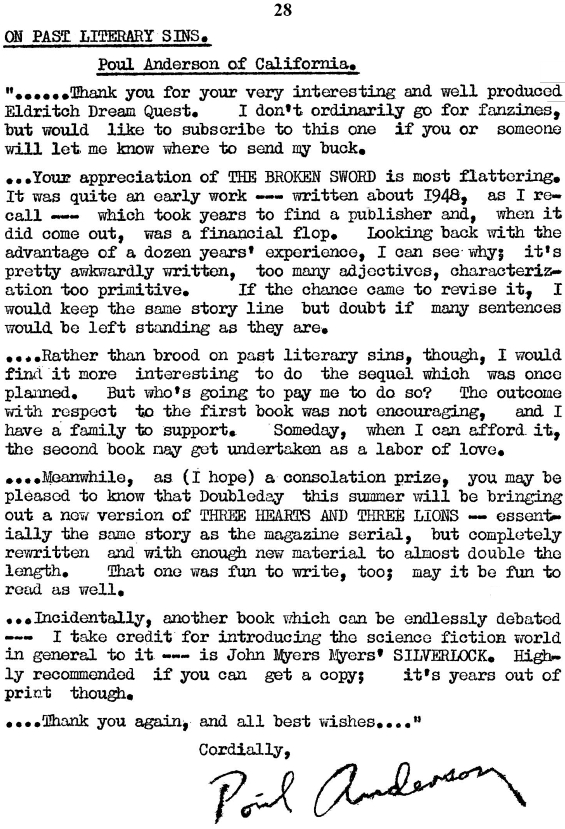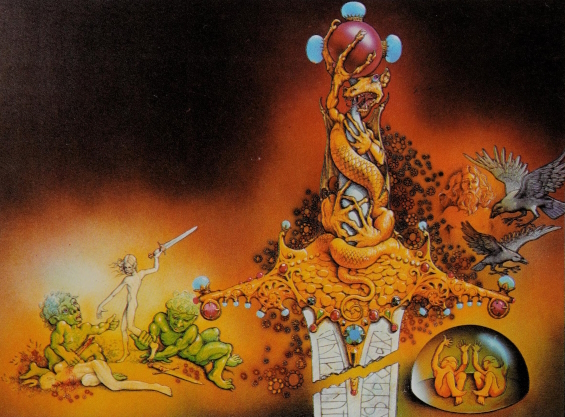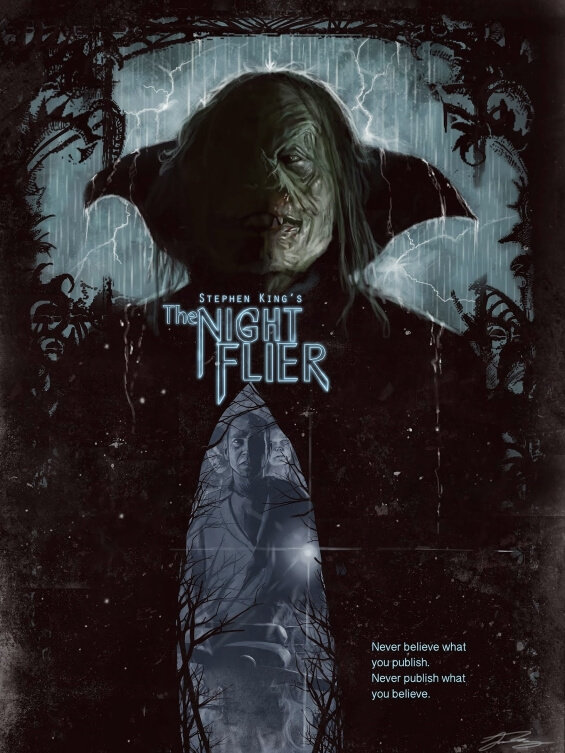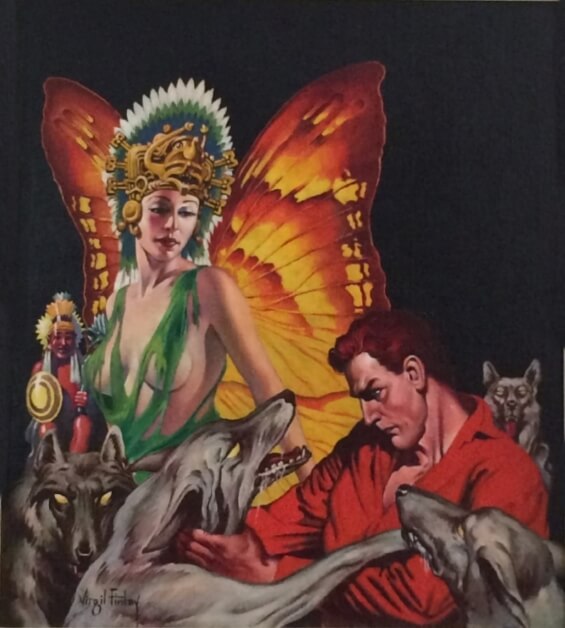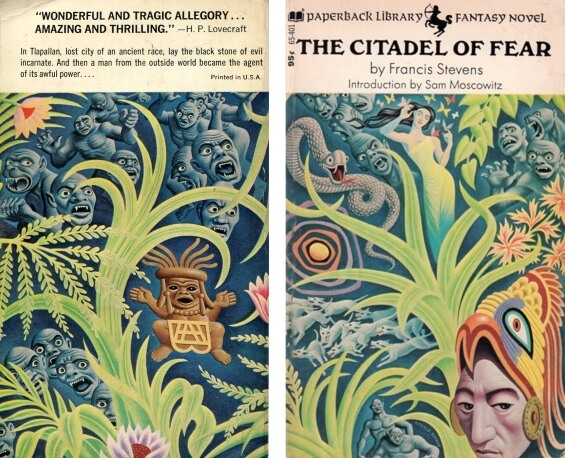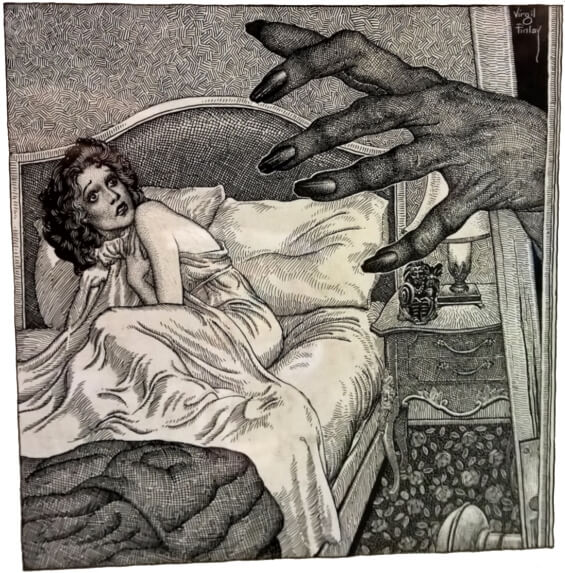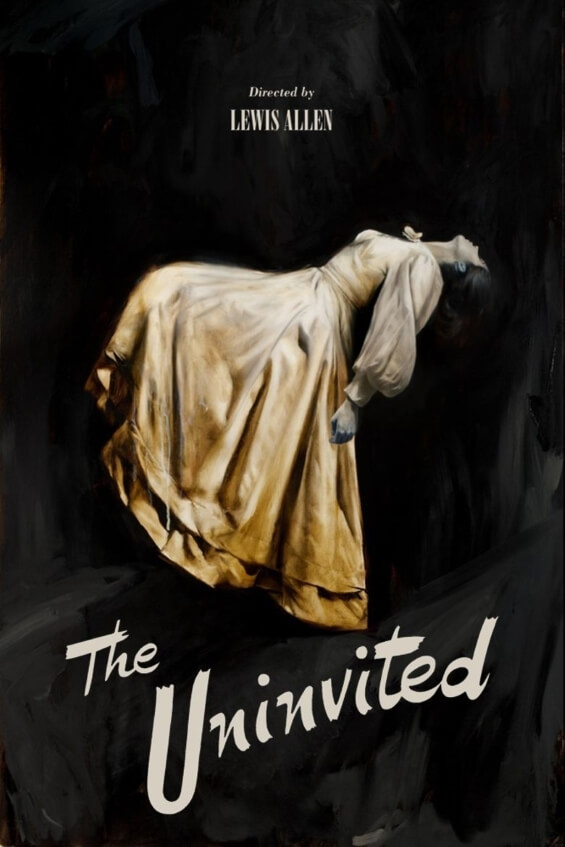
 The SFFaudio Podcast #432 – Jesse, Paul Weimer, and Marissa VU, talk about Ubik by Philip K. Dick
The SFFaudio Podcast #432 – Jesse, Paul Weimer, and Marissa VU, talk about Ubik by Philip K. Dick
Talked about on today’s show:
1969, the third most popular PKD novel, not much new in here, a lot more costumes, very familiar things, a pretty good book, the top half of the bottom half, for Dick connoisseurs like us, a tonne of Philip K. Dick, the end of the most lucid stage, things are starting to slide, conapts, strange realities, mysterious forces, a relatively coherent whole (except for the last chapter), we’ve done 40 episodes on Philip K. Dick, thank you, a Ubik ad, one of the first Philip K. Dick books Marissa read, well put together, loving this crazy guy’s writing, a different appreciation, What The Dead Men Say by Philip K. Dick, Virgil Finlay illustrations, this novel contains one page of that novelette, some crossover, names and concepts, no Joe Chip, amazing illustrations, a lot fewer angry wives, “wife”, become my wife, now you’re just a girl, that scene where some guy comes by with a girlfriend for the main character, Lord Runningclam, you’re depressed you need a girlfriend, G.G. Ashwood, on coffee and cigarettes and speed, a nice big fat commission, a sad sack Dick protagonist, Galactic Pot-Healer, so many connections, who is the Glimmung in this book?, strange messages on packages, notes, Ubik is the Glimmung, a thing or a tool?, a McGuffin, a random line, “I am”, God talking (from the Bible), one of those bathroom revelations, I am alive!, Chapter 17, “before the universe was, I am,” my name is never spoken, I am called Ubik, the little bon mots at the beginning over every chapter, “only as directed”, Christ Sally!, but now – wow!, the enterphone, my apartment’s a mess, a vague memory of going shopping the night before, the conapt’s super-maket, a green ration stamp, all drugs, expensive coffee, soporific, ubiquitous throughout the novel, in our higher moments, drug induced experiences of god, Ubik as an anti-psychedelic, legit, his novel is decaying, the world is regressing, Runciter, amphetamines, delusion and paranoia, Faith Of Our Fathers by Philip K. Dick, ubik reifies reality, after the explosion on the moon who is alive and who is dead?, are they all in coldpac?, is the entire novel a false world?, the facile answer, the central attraction of the novel, managing the question, a screenplay, skillfully done, Solar Lottery, an anti-telepath, the twitching of the bottle, feeling the echoes, Eye In The Sky, Ten Little Indians by Agatha Christie, a bomb, Impostor by Philip K. Dick, the bevatron novel (Eye In The Sky), Deus Irae by Philip K. Dick and Roger Zelazny, they’re all merging into one, Time Out Of Joint, recycling, somehow it still works, all the pieces fit together, good writing, comedy, horror, The Cookie Lady, a little boy named Bubber, a retelling of Hansel and Gretel without Gretel, a bundle of rags and a tumbleweed, the sick my duck website, Chapter 16, fades, “an evening wind rustled at him”, a real feeling, super-coffee, perked up, he let his unconscious take over early in the book, the Hour 25 interview, $0.06 for every novel sold, Ubik my dear sir, Gresham’s law, Ubik The Screenplay, 1985, a digital ebook, he’s kind of like us, reinterpreting his own work, visual metaphors, being told what you’re seeing, clothing description, playing up against the retro elements, 1939 -1933, dressing like Sgt. Pepper’s Lonely Hearts Club Band members, captain’s hats, when Pat comes, she starts taking her clothes off right away, you don’t remember, hence this, her breasts wagging forward, take-off, electric yellow cummerbund, knee hugging hose, gauntlets, “Gosh Jill, I wish I knew what was wrong with me lately”, inertia inertial, tousled woolly hair, luminous gypsy, jangled taughtness, wagging a goatish beard, gold lame trousers, kelp green minty blouse, cowboy chaps, a weak nosed young man in a maxi-skirt, hippie-fashion, green and tumbled stones (for eyes), tumbled eyes, tumbling black hair, is it a mistake or something he’s coding into the book, eye-colour changes, tipped me, here’s what good is and here’s what bad is, genocide is a bad thing, increase the amount of suffering make more things that can suffer, getting eaten or crushed by a rock, it doesn’t end well for any piece of life, Fred Saberhagen’s Berserker books, kinda makes sense, H.P. Lovecraft, The Turning Wheel, life is suffering, escaping from the cycle, life is the only thing in the universe that is anti-entropic, trying to fight entropy, God is the one who created life in the mythology, hence all the suffering, the demiurge, what half of PKD novels seem to be about, a booster-strap for life itself, the sub-worlds of Runciter, the final narrator, the Gnostic interpretation of Ubik, a coin with Joe Chip’s face on it, Inception is the movie adaptation of this, The Matrix, time is frozen, coldpac and moratorium, we’ve seen that in other Dick novels, racist, Dr. Futurity?, there sitting to close together in the freezer, The Crack In Space, escaping from entropy, the fundamental grounding, the Gaurdian article: it’s squishy, there’s no firm ground, life is very problematic, the horror of entropy, never a permanent solution, the DNA breaks down, fiction, especially novels can be preserved, the preservation of the text is like the preservation of DNA, finding the earliest publication, Edgar Allan Poe’s The Valley Of Unrest, as time goes by in the publication industry people fiddle with stuff, italics, a poem is a super concentrated story, each sentence is an image, Jesse do you like pizza?, who likes pizza is the question, the question of the correct text, a novel is a fixed thing, does the font effect it?, formatting, outside of our reality, a way of preserving history, in a meta-context, he’s holding some ubik in his hand and it starts regressing, the changing context showing there’s no escape from the dread horror of entropy, we don’t want it to change anymore, constructing it on the fly, coins at the beginning, her special psychic power is to change reality in the past, some politician coming on to TV to talk about What Happened, is that really what happened?, our default is to just believe what we hear, we believe our sense, we start with believing our senses, everything is deceiving including our memories, if everyone around us in believing it, if everyone is delusional, they have to hang together, their tomb world, another TOMB WORLD!, invoking the name: Palmer Eldritch, what is an S. Dole Melipone?, he doesn’t know what he’s doing yet, the entire last chapter:
Chapter 17
I am Ubik. Before the universe was, I am. I made the suns. I made the worlds. I created the lives and the places they inhabit; I move them here, I put them there. They go as I say, they do as I tell them. I am the word and my name is never spoken, the name which no one knows. I am called Ubik, but that is not my name. I am. I shall always be.
Glen Runciter could not find the moratorium owner.
“Are you sure you don’t know where he is?” Runciter asked Miss Beason, the moratorium owner’s secretary. “It’s essential that I talk to Ella again.”
“I’ll have her brought out,” Miss Beason said. “You may use office 4-B; please wait there, Mr. Runciter; I will have your wife for you in a very short time. Try to make yourself comfortable.”
Locating office 4-B, Runciter paced about restlessly. At last a moratorium attendant appeared, wheeling in Ella’s casket on a handtruck. “Sorry to keep you waiting,” the attendant said; he began at once to set up the electronic communing mechanism, humming happily as he worked.
In short order the task was completed. The attendant checked the circuit one last time, nodded in satisfaction, then started to leave the office.
“This is for you,” Runciter said, and handed him several fifty-cent pieces which he had scrounged from his various pockets. “I appreciate the rapidity with which you accomplished the job.”
“Thank you, Mr. Runciter,” the attendant said. He glanced at the coins, then frowned. “What kind of money is this?” he said.
Runciter took a good long look at the fifty-cent pieces. He saw at once what the attendant meant; very definitely, the coins were not as they should be. Whose profile is this? he asked himself. Who’s this on all three coins? Not the right person at all. And yet he’s familiar. I know him.
And then he recognized the profile. I wonder what this means, he asked himself. Strangest thing I’ve ever seen. Most things in life eventually can be explained. But – Joe Chip on a fifty-cent piece?
It was the first Joe Chip money he had ever seen.
He had an intuition, chillingly, that if he searched his pockets, and his billfold, he would find more.
This was just the beginning.
ravelling around Runciter, Jesse casts a spell: Counter-Clock World,
“I was dreaming,” Ella said. “I saw a smoky red light, a horrible light. And yet I kept moving toward it. I couldn’t stop.”
“Yeah,” Runciter said, nodding. “The Bardo Thodol, the Tibetan Book of the Dead, tells about that. You remember reading that; the doctors made you read it when you were-” He hesitated. “Dying,” he said then.
“The smoky red light is bad, isn’t it?” Ella said.
“Yeah, you want to avoid it.” He cleared his throat. “Listen, Ella, we’ve got problems. You feel up to hearing about it? I mean, I don’t want to overtax you or anything; just say if you’re too tired or if there’s something else you want to hear about or discuss.”
“It’s so weird. I think I’ve been dreaming all this time, since you last talked to me. Is it really two years? Do you know, Glen, what I think? I think that other people who are around me – we seem to be progressively growing together. A lot of my dreams aren’t about me at all. Sometimes I’m a man and sometimes a little boy; sometimes I’m an old fat woman with varicose veins… and I’m in places I’ve never seen, doing things that make no sense.”
“Well, like they say, you’re heading for a new womb to be born out of. And that smoky red light – that’s a bad womb; you don’t want to go that way. That’s a humiliating, low sort of womb. You’re probably anticipating your next life, or whatever it is.” He felt foolish, talking like this; normally he had no theological convictions. But the half-life experience was real and it had made theologians out of all of them. “Hey,” he said, changing the subject. “Let me tell you what’s happened, what made me come here and bother you. S. Dole Melipone has dropped out of sight.”
A moment of silence, and then Ella laughed. “Who or what is an S. Dole Melipone? There can’t be any such thing.” The laugh, the unique and familiar warmth of it, made his spine tremble; he remembered that about her, even after so many years. He had not heard Ella’s laugh in over a decade.
“Maybe you’ve forgotten,” he said.
Ella said, “I haven’t forgotten; I wouldn’t forget an S. Dole Melipone. Is it like a hobbit?”
consulting the dead in order to make corporate decisions, we just drop it, what’s he visiting her for, there’s no business in this book at all, the business of being alive, an excuse to go to Switzerland and see his dead wife, step-up your TV ads, you need to send off more manuscripts, Ella, it’s a cryogenics book, it’s all bullshit, it’s just a way of avoiding death, if you’re living in a half-life, fundamentally there’s a really weird long part of the interview that’s pretty interesting, how the Soviet Union that had scientists that wanted to talk to him, from the Soviet embassy, I played dumb, classic Dick, A Scanner Darkly, he’s both the drug deal and the drug cop, he’s informing on himself, worlds inside worlds, to connect it to our reality, we only have access to the constructs of reality, What It Is Like To Be A Bat?, swapping genders, Philip K. Dick creating these characters, if you have a fixed text you can escape from your shared reality, it isn’t as squishy as regular reality, its only you who change between readings (we hope), the anomalies are the clues, that wouldn’t negate the point, after the explosion when they’re all on the Pratfall II, Glen Runciter’s POV, his transparent plastic casket,
Removing the plastic disk from its place, its firm adhesion to his ear, Glen Runciter said into the microphone, “I’ll talk to you again later.” He now set down all the communications apparatus, rose stiffly from the chair and momentarily stood facing the misty, immobile, icebound shape of Joe Chip resting within its transparent plastic casket. Upright and silent, as it would be for the rest of eternity.
Sarapis, plastic rosebuds, “A man that vital. And vitalic.”, that’s a weird error, upright, her sagacity, a wisdom not based on knowledge and experience, maybe the whole thing is in Ella’s world, the cop with little blonde pig-tails and red shoes, she’s changing characters, maybe they all fit together, the Technovelgy website, artiforg = artificial organs (also artificial and forged) = a fake fake, automatic apartment maintenance, homeopapes are Twitter feeds, high gossip vs. low gossip, physiognomic template, a tranquilizing gum, amazing technobabble:
“What is Ubik?” Joe said, wanting her to stay.
“A spray can of Ubik,” the girl answered, “is a portable negative ionizer, with a self-contained, high-voltage, low-amp unit powered by a peak-gain helium battery of 25kv. The negative ions are given a counter-clockwise spin by a radically biased acceleration chamber, which creates a centripetal tendency to them so that they cohere rather than dissipate. A negative ion field diminishes the velocity of anti-protophasons normally present in the atmosphere; as soon as their velocity falls they cease to be anti-protophasons and, under the principle of parity, no longer can unite with protophasons radiated from persons frozen in cold-pac; that is, those in half-life. The end result is that the proportion of protophasons not canceled by anti-protophasons increases, which means – for a specific time, anyhow – an increment in the net put-forth field of protophasonic activity… which the affected half-lifer experiences as greater vitality plus a lowering of the experience of low cold-pac temperatures. So you can see why regressed forms of Ubik failed to-”
Joe said reflexively, “To say ‘negative ions’ is redundant. All ions are negative.”
complete bullshit, this is how people buy products, all that babble mixed with the Amazing promises, Deepak Chopra, self-criticizing, chapter 16:
Under a streetlight he held up the spray can of Ubik, read the printing on the label.
I THINK HER NAME IS MYRA LANEY, LOOK ON REVERSE SIDE OF CONTAINER FOR ADDRESS AND PHONE NUMBER.
“Thanks,” Joe said to the spray can. We are served by organic ghosts, he thought, who, speaking and writing, pass through this our new environment. Watching, wise, physical ghosts from the full-life world, elements of which have become for us invading but agreeable splinters of a substance that pulsates like a former heart. And of all of them, he thought, thanks to Glen Runciter. In particular. The writer of instructions, labels and notes. Valuable notes.
like the Glimmung, Jesus: Don’t worry guys I’m going away for a while buyt I’ll be back!, they are Jesus for each other, the Inception situation, there’s no top level, there’s only the outside of the book, the writer is dead (Dick) but he’s in half-life becasuue we can read his book, maybe we’re all dead, Ubik is real!, Jesse’s Satoshi Nakamura theory, why graphics cards are so expensive, video cards are reality simulators, BitCoin, he’s gone dark, Satoshi Nakamura is a benevolent AI trying to fix our world, economic theory, an indefeatable unstoppable way to subvert the power of the banks, like the Glimmung, it’s not all powerful, it’s just an AI, it’s a demiurge of some-kind, kind of what Neuromancer is, the end of True Names by Vernor Vinge, Neuromancer also has a half-life in the form of a hacker on a ROM-chip (Dixie Flatline), thanks for helping me pull this heist, turn me off, a completely different kind of writer dealing with the same kind of stuff, hack to hard, episode 136, while trying to crack an AI, the lesson for Runciter, does it even matter what the status, it’s the old trick, the best trick there is, he’s always pulling the same exact move and you see it coming, getting close to book length, the swerve, curling back on itself, peak Dick, most popular Philip K. Dick books in order of popularity, Martian Time-Slip, what you’ve read of him before, Evan Lampe’s American Writers: One Hundred Pages At A Time podcast, how Philip K. Dick is always thinking about the frontier, the horror world, The Father Thing, The Simulacra, The Pentultimate Truth, the big surprise Now Wait For Last Year, Valis, the titles all flow together, the alternate titles for Ubik: Death Of An Anti-Watcher a new spin on the last chapter?, who is dead?, One theory: everybody died except for Runciter, The Half Life Of An Anti-Watcher?, a story about a dead-guy: Runciter, Runciter is the main character, the pixie-like Pat, maybe she is Ella as an older woman, there’s no answer here, who is that Ubik girl, ultimately Marissa and Jesse are figments of Paul’s imagination, this is Philip K. Dick doing Philip K. Dick.

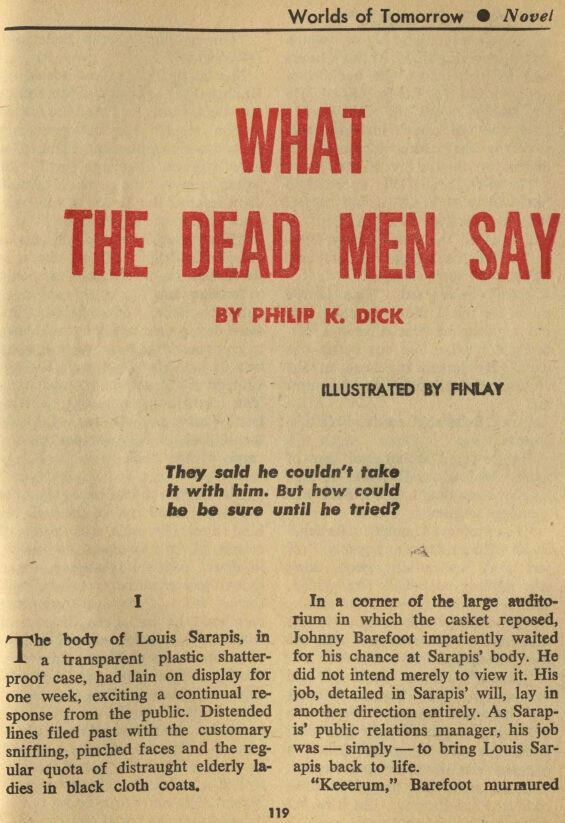
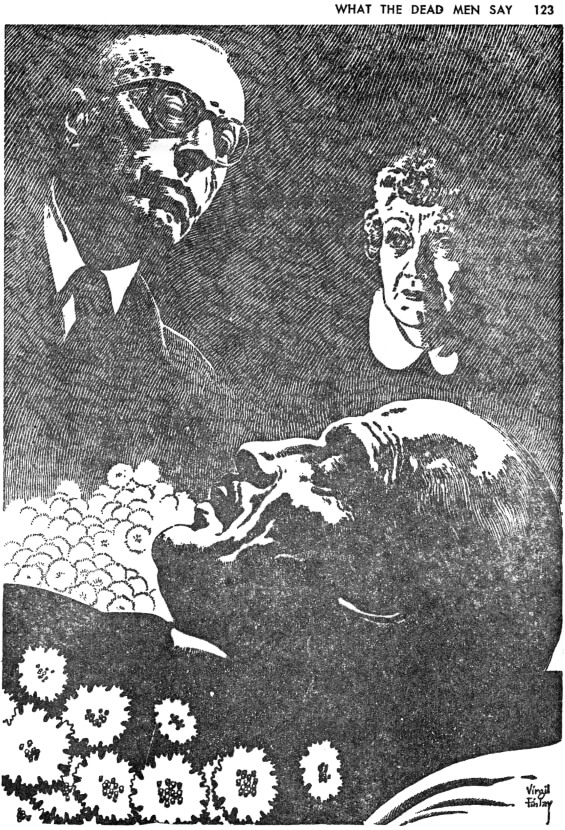
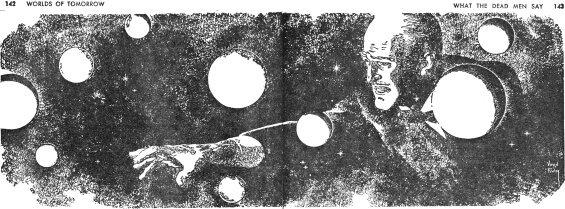
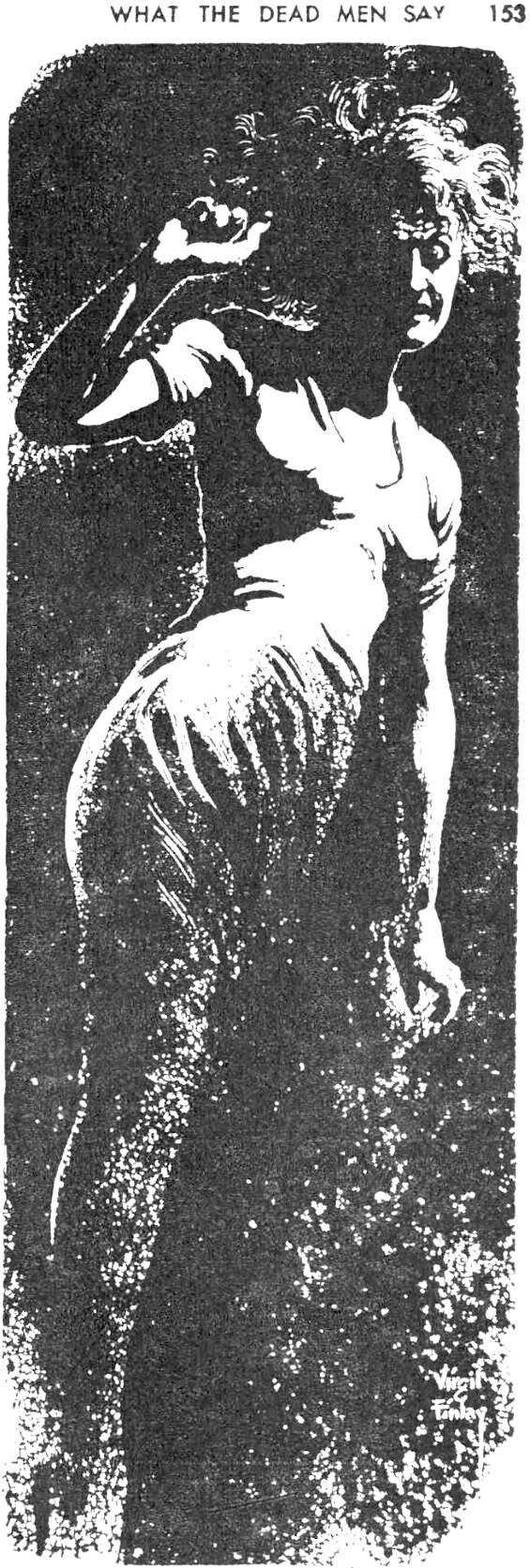
Posted by Jesse Willis

 The SFFaudio Podcast #448 – Jesse, Scott, and Paul Weimer talk about The Broken Sword by Poul Anderson
The SFFaudio Podcast #448 – Jesse, Scott, and Paul Weimer talk about The Broken Sword by Poul Anderson